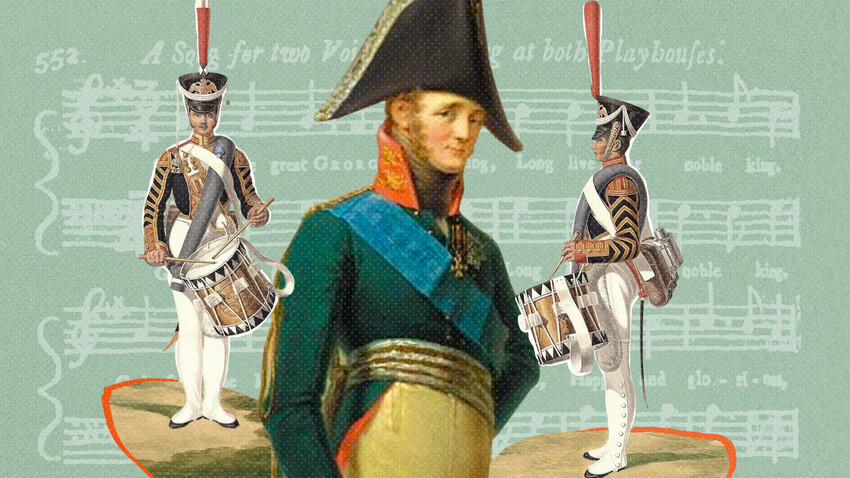
The Russian Empire did not have an official anthem until 1816. Instead, one of three compositions was played at official events:
1) The war song ‘Let the Thunder of Victory Rumble!’ (words by Gavriil Derzhavin, music by Osip Kozlovsky);
2) The religious hymn ‘How Glorious Is Our Lord in Zion’ (words by Mikhail Kheraskov, music by Dmitry Bortniansky);
3) The March of the Preobrazhensky Regiment (composer unknown) – in celebration of military victories. After all, according to tradition, the chief of the regiment was always the Russian emperor himself.
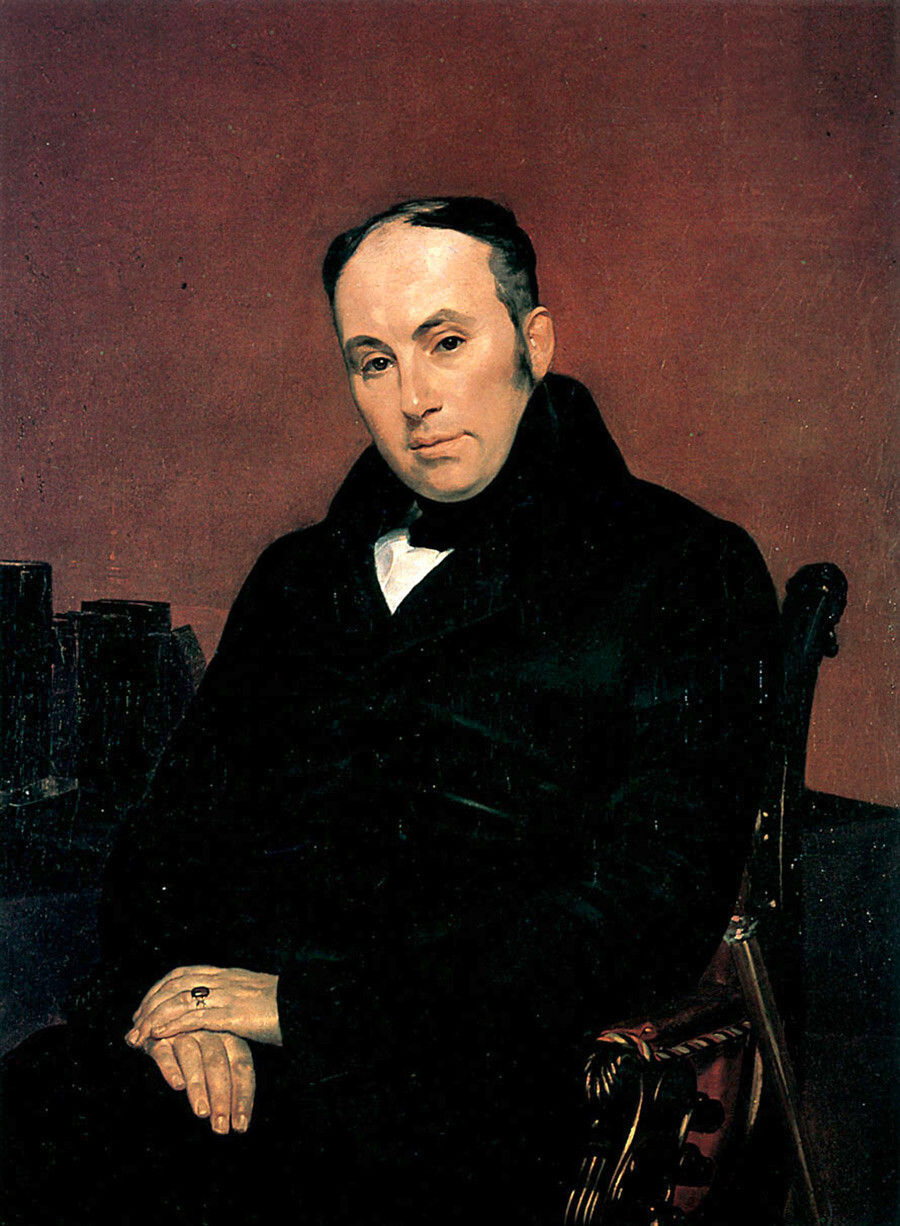
Vasiliy Zhukovsky by Karl Bryullov, 1837-1838
National Museum Тaras ShevchenkoThree different anthems – that was somehow confusing. Under Emperor Alexander I, it was decided to establish a new, unified anthem.
At the end of 1816, Alexander issued a decree making ‘The Prayer of Russians’ the first official anthem of the Russian Empire. The words of the anthem were taken from a poem of the same name by Vasily Zhukovsky. But, the music was copied from the British anthem.
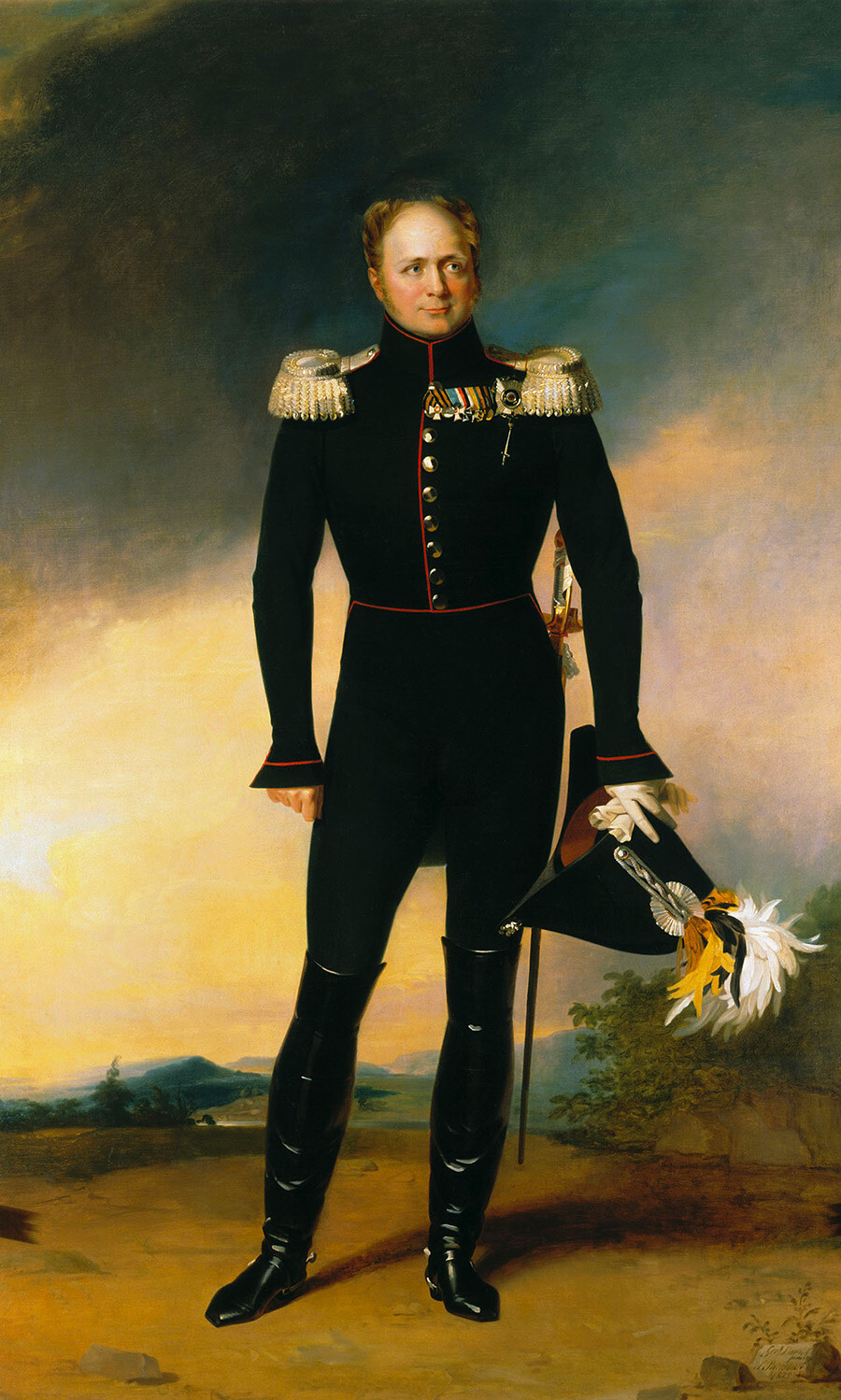
Alexander I by George Dawe
Peterhof PalaceEmperor Alexander was an Anglophile, like his inner circle in the early years of his reign. The friendship between Russia and England only strengthened after the Russian victory over Napoleon and, in St. Petersburg, Anglophilia was literally elevated to an official level. For example, a gallery of portraits of the heroes of the War of 1812 was created under the direction of British portraitist George Dawe.
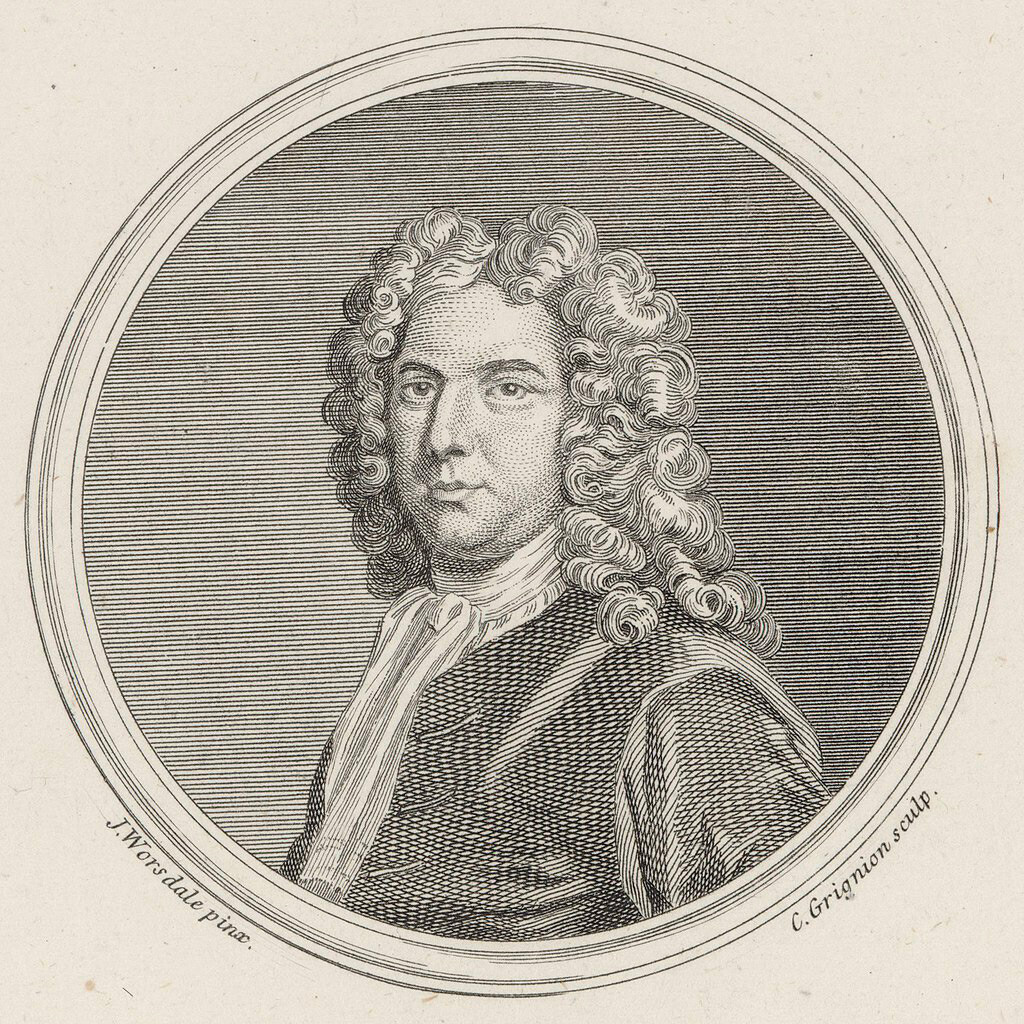
Henry Carey, author of the British National anthem
Gallica Digital LibraryHere, too, the new hymn was set to the music of Britain’s ‘God Save The King’ (by poet and composer Henry Carey) and the first lines of the hymns were identical in meaning: ‘The Prayer of Russians’ started with words ‘Bozhe, tsarya khrani’ (‘God save the tsar’).
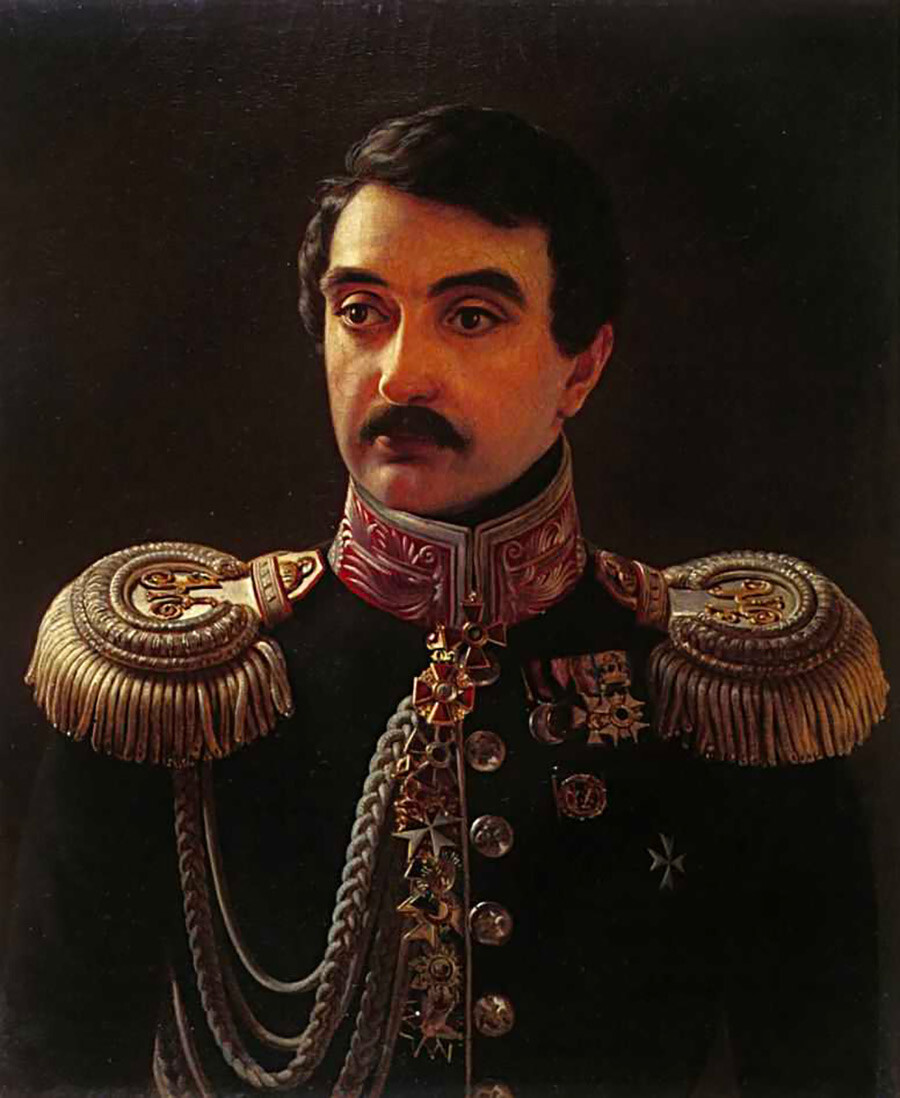
Alexey Lvov, composer, author of the Russian National anthem
Samara Art MuseumThe hymn ‘The Prayer of Russians’ was, subsequently, performed at all solemn meetings and exits of the emperor. It remained the national anthem of Russia until 1833, when, by order of Emperor Nicholas I, composer Alexei Lvov (1798-1870) wrote new music and Vasily Zhukovsky slightly changed his original text – thus, the anthem ‘God Save the Tsar!’ appeared, which was used until 1917. It also started with the same words, but diverged after that.
Dear readers,
Our website and social media accounts are under threat of being restricted or banned, due to the current circumstances. So, to keep up with our latest content, simply do the following:
If using any of Russia Beyond's content, partly or in full, always provide an active hyperlink to the original material.
Subscribe
to our newsletter!
Get the week's best stories straight to your inbox